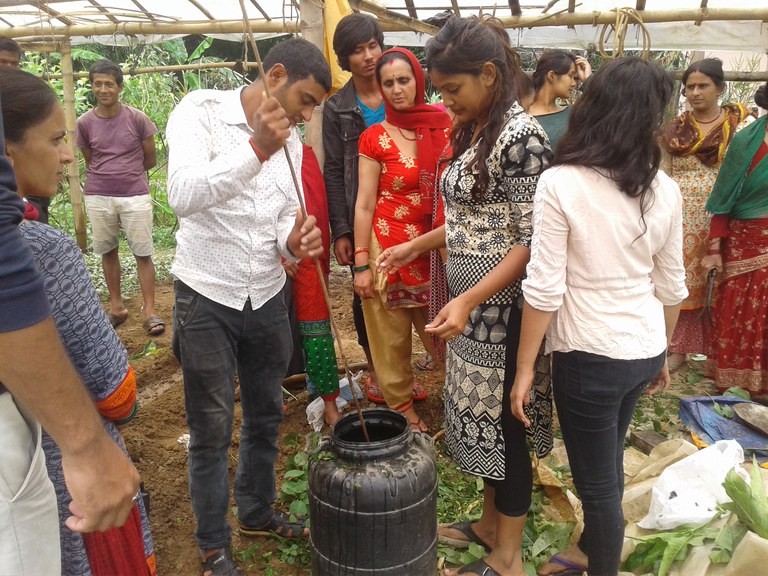Posted: February 17, 2020
INTAD student Divya Pant shares her experience working in a livelihood project in Nepal before beginning her master's program at Penn State.
INTAD student Divya Pant shares her experience working in a livelihood project in Nepal before beginning her master's program in Agronomy at Penn State.
I worked in an integrated livelihood project that was focused on training related to integrated pest management, preparation of biopesticide, farm design, soil conservation practices, and conservation agriculture during my three years tenure as Joint Secretary in Youth For Agri Welfare in my home country of Nepal.
Working as a research extensionist and an agriculture leader, I got the opportunity to share my expertise with farmers. I would like to share my experience about one of livelihood projects carried in Phalebas municipality of Parbat district, Nepal. I was a part of a team of research extensionists that conducted training entitled as “Integrated farming and sustainable farm design for a small household." Technical advice was focused on soil management, allocation of farm resources, pest control. The training sessions would be followed by practical sessions in the farmer's field. From the field visit, it was evident that the farmers of Parbat district were facing yield loss from pest infestation. Pesticide application was not a solution for them, because most of them did not have access to expensive inputs. But the area was rich in natural vegetation and medicinal herbs.
Based on the availability of resources, the farmers were given training on the preparation and application of JholMol(biopesticide). Jholmol is natural biofertilizer cum biopesticide that is made by using cow dung, urine, water, decomposed materials mixed with different botanicals like Melia Azadirachta (Neem), Artemisia Vulgaris( Teeti Pati), Acorus (bojho), Xanthoxyllum (Timur), Justicia Adhota (Asuro), Timur, Onion, Turmeric, Garlic, Ash, Marigold, etc. Biopesticide was found to be very effective in controlling root-knot nematode in tomato, rhizome rot of zinger and also was effective in controlling insect pests. These diseases are hard to check even with modern means of pest control.
Working in similar projects shaped my path towards sustainable and conservation agriculture. Agricultural practices in Nepal are still confined within the traditional methods and I wanted to explore the horizon of my learning in terms of research, technology, and practices, such that I could contribute more towards agriculture development. Thus, I began my venture as a graduate research assistant at Penn State University since August 2019 and now I am part of INTAD. And I am looking forward to learning in a diverse community.
INTAD
Address
Melanie Miller Foster106 Agricultural Administration Building
University Park, PA 16802
- Email mjm727@psu.edu
- Office 814-863-0249
- Fax 814-865-3055
INTAD
Address
Melanie Miller Foster106 Agricultural Administration Building
University Park, PA 16802
- Email mjm727@psu.edu
- Office 814-863-0249
- Fax 814-865-3055


